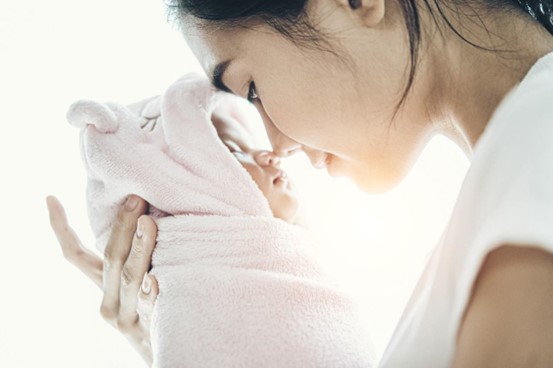Antenatal and Postnatal Mental Health
Emotional problems during the antenatal or postnatal period would affect mothers' mental state, daily functioning, work performance, marital relationship and baby's development.
Antenatal Depression
During pregnancy, mothers suffering from depression could have a higher risk of miscarriage and premature delivery. Research findings suggested that when mothers had depressive or anxiety symptoms during their pregnancy, they would have a much higher risk of having postnatal depression. Their infants tend to show more emotional and behavioral problems too.
Postnatal Depression
After delivery, because of the hormonal changes, role change, challenges in baby care and family problems, mothers could have a higher risk of suffering from mood disorders. Postnatal depression could affect mothers' ability in taking care of their baby and have impact on infants' physical health, cognitive development as well as emotional and behavioural development. The partners of mothers with postnatal depression may also have a higher risk of emotional disturbance. Thus, it is very important to take care of the mental health of women during the antenatal and postnatal periods.
The Department of Health provides support for all women attending the Maternal and Child Health Centres (MCHCs) for perinatal services, including delivering and distributing health information on antenatal and postnatal problems, so that mothers and their family members can go through this stage smoothly with less worries and stress. Healthcare professionals will also provide perinatal emotional assessment to facilitate early identification of women in need, so that appropriate follow-up and referral can be made.

Tips on Prevention of Antenatal and Postnatal Depression
- Adequate preparation and arrangements before pregnancy, including financial and psychological aspects etc.
- Minimize major life changes, such as job changing or moving to a new home; if they are inevitable, prioritize accordingly.
- Accept limitations in physical condition or ability, and avoid worn out.
- Have realistic expectations for parenthood to help adjustment to life after delivery.
- Learn more about pregnancy, childbirth and childcare through various means, e.g. joining childcare and parenting workshops and participating in relevant talks arranged by organizations in the communities.
- Cultivate effective communication with the partner and other family members to improve understanding and support. Continue to show your love, respect and support despite disagreement; be open during negotiation to come up with mutually acceptable solution.
- Have more experience sharing with other parents and acquire more social support.
- Get enough rest and sleep, e.g. arranging appropriate person to help with household and childcare after childbirth.
- Spare some time for leisure and relaxing activities, e.g. going for a walk, doing relaxation exercise or calling friends, based on your preference.
- Maintain a healthy diet. Do not smoke and avoid beverages containing alcohol.
- Appreciate yourself, particularly your effort paid.
For more details, please refer to the leaflet issued by the Department of Health.
Source: Department of Health